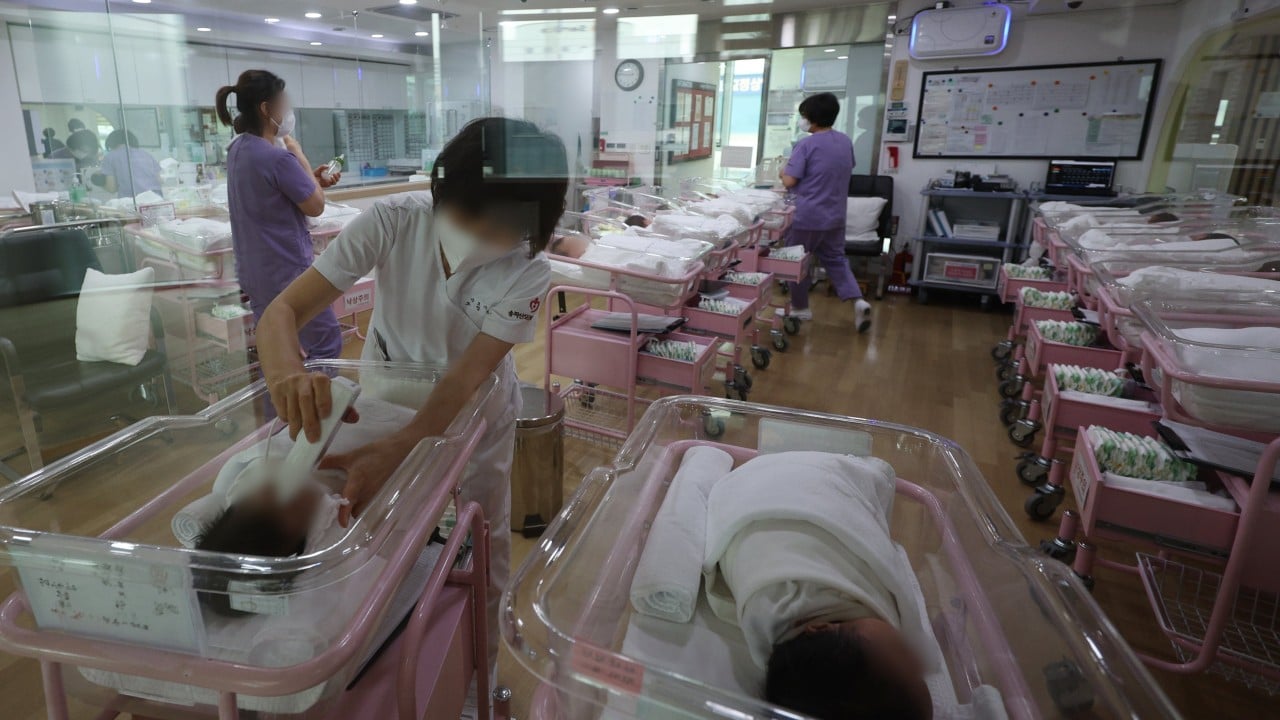South Korea’s fertility rate rose in 2024 for the first time in nine years, supported by an increase in marriages, preliminary data showed on Wednesday, in a sign that the country’s demographic crisis might have turned a corner.
Advertisement
The country’s fertility rate, the average number of babies a woman is expected to have during her reproductive life, stood at 0.75 in 2024, according to Statistics Korea.
In 2023, the birth rate fell for the eighth consecutive year to 0.72, the lowest in the world, from 1.24 in 2015, raising concerns over the economic shock to society from such a rapid pace.
Since 2018, South Korea has been the only member of the Organisation for Economic Co-Operation and Development (OECD) with a rate below 1.

South Korea has rolled out various measures to encourage young people to get married and have children, after now impeached President Yoon Suk-yeol declared a “national demographic crisis” and a plan to create a new ministry devoted to tackling low birth rates.
Advertisement
“There was a change in social value, with more positive views about marriage and childbirth,” Park Hyun-jung, an official at Statistics Korea, told a briefing, also citing the impact of a rise in the number of people in their early 30s and pandemic delays.

